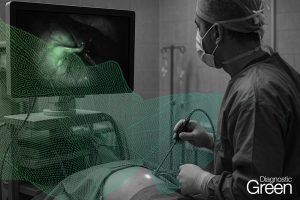Hepatocellular carcinoma (HCC) patients have chronic liver disease with functional deterioration and multicentric oncogenicity. Liver surgeries for the patients should be planned on both oncological effects and sparing liver function. In colorectal patients with post-chemotherapy liver injury and multiple bilateral tumors, handling multiple tumors in a fragile/easy-to-bleed liver is an important issue. Liver surgery for biliary tract cancers is often performed as a resection of large-volume functioning liver with extensive lymphadenectomy and bile duct resection/reconstruction.
Minimally invasive liver surgery (MILS) for HCC is applied with the advantages of laparoscopic for cases of cirrhosis or repeat resections. Small anatomical resections using the Glissonian, indocyanine green-guided, and hepatic vein-guided approaches are under discussion.
In many cases of colorectal liver metastases, MILS is applied combined with chemotherapy owing to its advantage of better hemostasis. Two-stage hepatectomy and indocyanine green-guided tumor identification for multiple bilateral tumors are under discussion. In the case of biliary tract cancers, MILS with extensive lymphadenectomy and bile duct resection/reconstruction are developing. A robot-assisted procedure for dissection of major vessels and handling fragile livers may have advantages, and well-simulated robot-assisted procedure may decrease the difficulty for biliary tract cancers.




